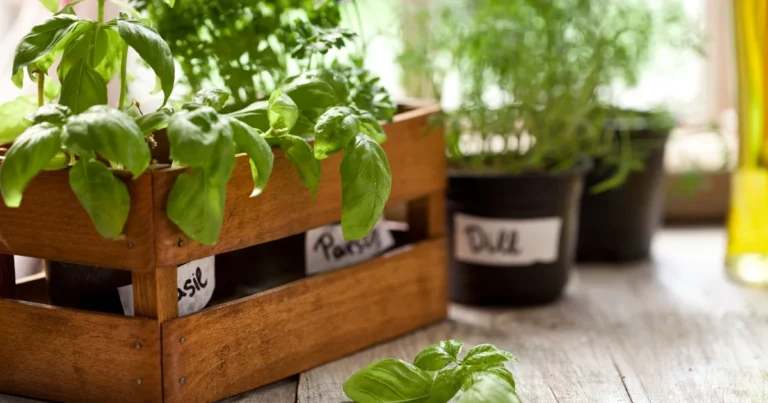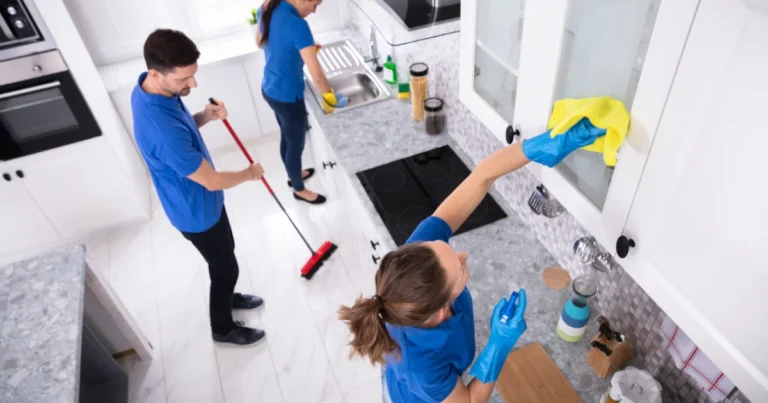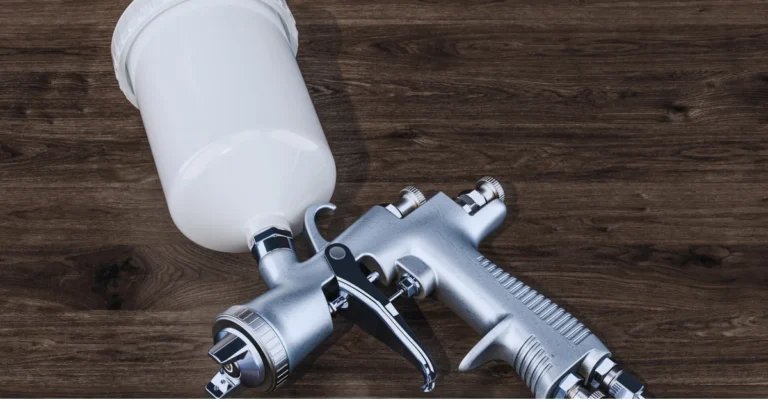How to Care for Garden Tools
Garden tools are essential companions for any gardener, but they require proper care to maintain their effectiveness and longevity. Whether you’re a novice or a seasoned gardener, knowing how to care for your tools ensures they remain in top condition, saving you time, effort, and money in the long run.
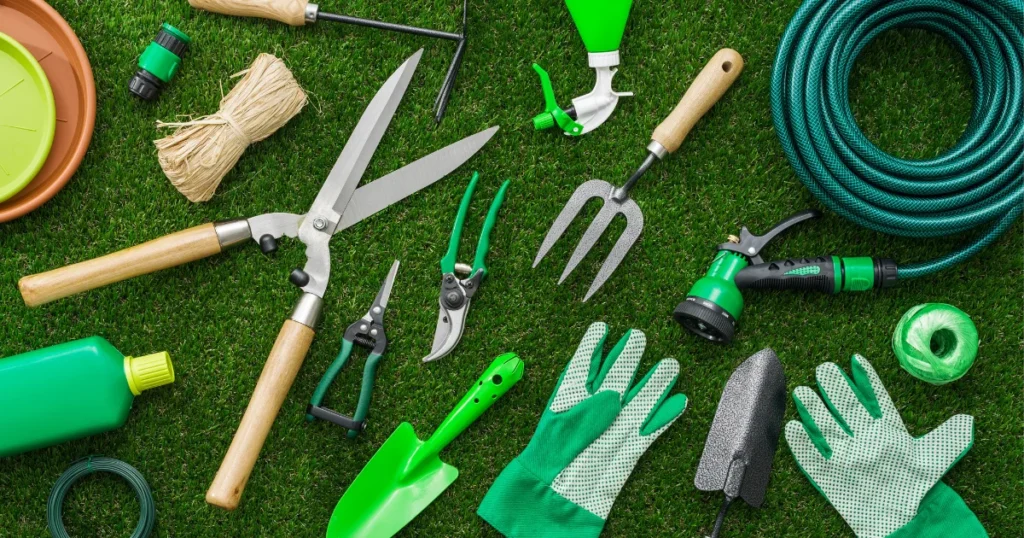
In this comprehensive guide, we’ll explore practical tips and techniques for caring for your garden tools, from cleaning and maintenance to storage and sharpening, all aimed at maximizing their performance and durability. If you are new to gardening and want to know about essential tools then read our article on essential gardening tools.
steps to care for garden tools:
1. Clean Your Tools After Each Use:
After using your garden tools, it’s essential to clean them thoroughly to remove dirt, debris, and plant residue. Use a brush or sponge to scrub away any soil or plant matter, paying special attention to crevices and joints where dirt can accumulate.
Rinse the tools with water to remove any remaining dirt, then dry them thoroughly with a clean cloth to prevent rust and corrosion. For stubborn dirt or sap buildup, you can use a solution of mild detergent or vinegar to clean the tools effectively.
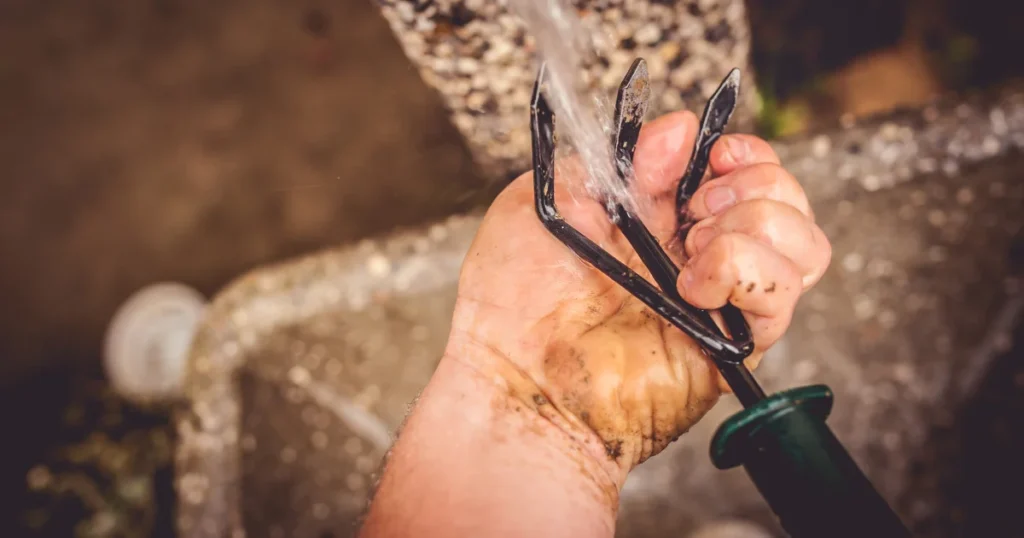
2. Remove Rust and Corrosion:
Over time, metal garden tools may develop rust or corrosion, especially if they’re exposed to moisture or left outdoors. To remove rust, use a wire brush or sandpaper to scrub away the rusty areas until the metal is clean and smooth.
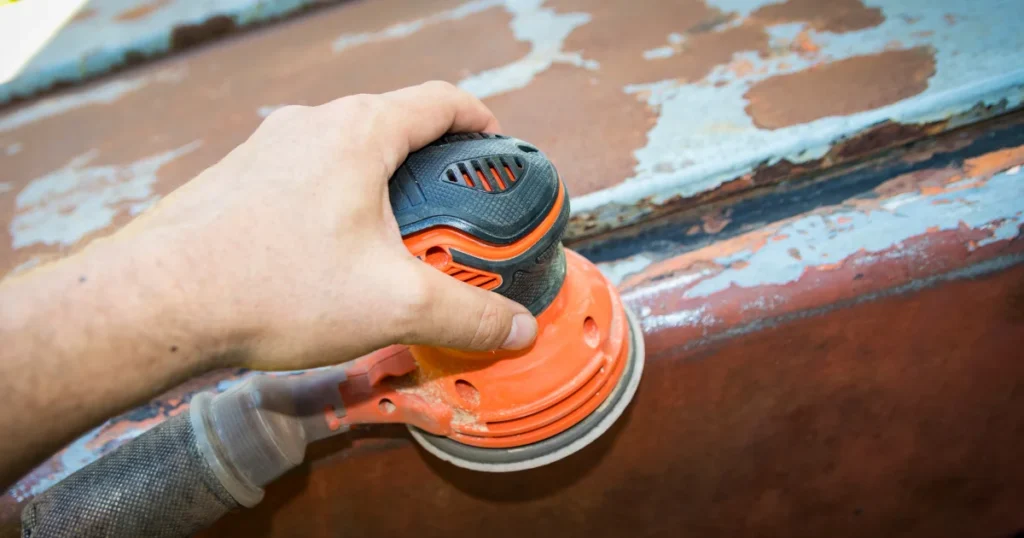
For stubborn rust or corrosion, you can soak the tools in a solution of vinegar or rust remover overnight, then scrub them clean with a wire brush or abrasive pad. Once the rust is removed, dry the tools thoroughly and apply a thin coat of oil to prevent future rusting.
3. Sharpen Blades and Cutting Edges:
Sharp blades and cutting edges are essential for efficient and precise gardening tasks. Regularly sharpening your garden tools, such as pruners, shears, and shovels, ensures they cut cleanly and effectively, reducing strain on both you and your plants.
Use a sharpening stone or file to sharpen the blades, following the original bevel angle to maintain their sharpness and integrity. Take your time and use even, consistent strokes to achieve a sharp edge without removing too much metal.
4. Oil Moving Parts and Hinges:
Moving parts and hinges on garden tools, such as pruners, shears, and loppers, benefit from regular lubrication to prevent rust and corrosion and ensure smooth operation. Apply a few drops of lightweight machine oil or silicone spray to the moving parts and hinges, then work them back and forth to distribute the oil evenly.
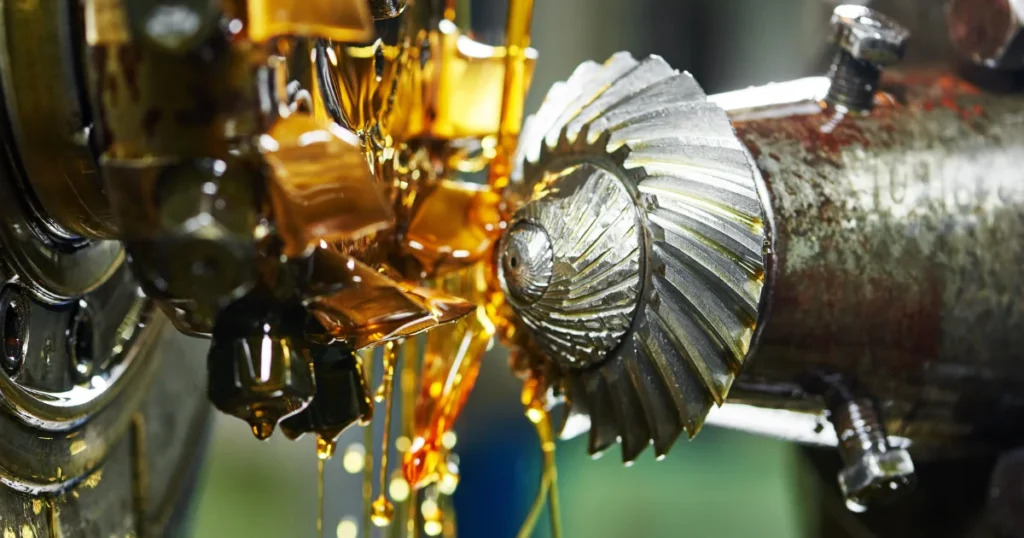
Avoid using heavy oils or greases, as they can attract dirt and debris and gum up the moving parts over time. Instead, opt for light oils that provide lubrication without leaving a sticky residue.
5. Store Your Tools Properly:
Proper storage is key to prolonging the life of your garden tools and keeping them in good condition. Store your tools in a dry, well-ventilated area, such as a shed or garage, to protect them from moisture and humidity.
Hang your tools on hooks or racks to keep them organized and prevent them from coming into contact with the ground, which can lead to rust and damage. Alternatively, you can store them in a clean, dry bucket or toolbox for added protection.
6. Regularly Inspect Your Tools:
Regular inspection of your garden tools allows you to identify any signs of wear, damage, or deterioration early on and take corrective action before it becomes a problem. Check for loose handles, cracked blades, bent tines, or other issues that may affect the performance of the tools.
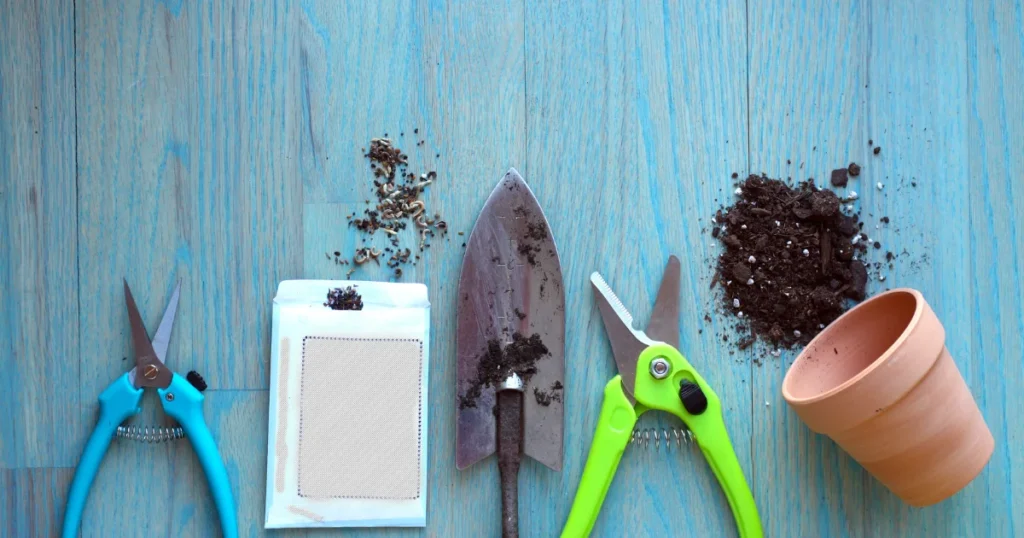
Repair or replace any damaged or worn parts as needed to ensure your tools remain safe and functional. Investing a little time and effort in maintenance and repairs can save you from having to replace your tools prematurely.
last verdict:
Caring for your garden tools is essential for maintaining their effectiveness, longevity, and performance. By following the practical tips outlined in this guide, from cleaning and maintenance to storage and sharpening, you can ensure your tools remain in top condition for years to come, saving you time, effort, and money in the long run.
So take care of your tools, and they’ll take care of your garden, helping you create a beautiful and bountiful outdoor space to enjoy year after year.

